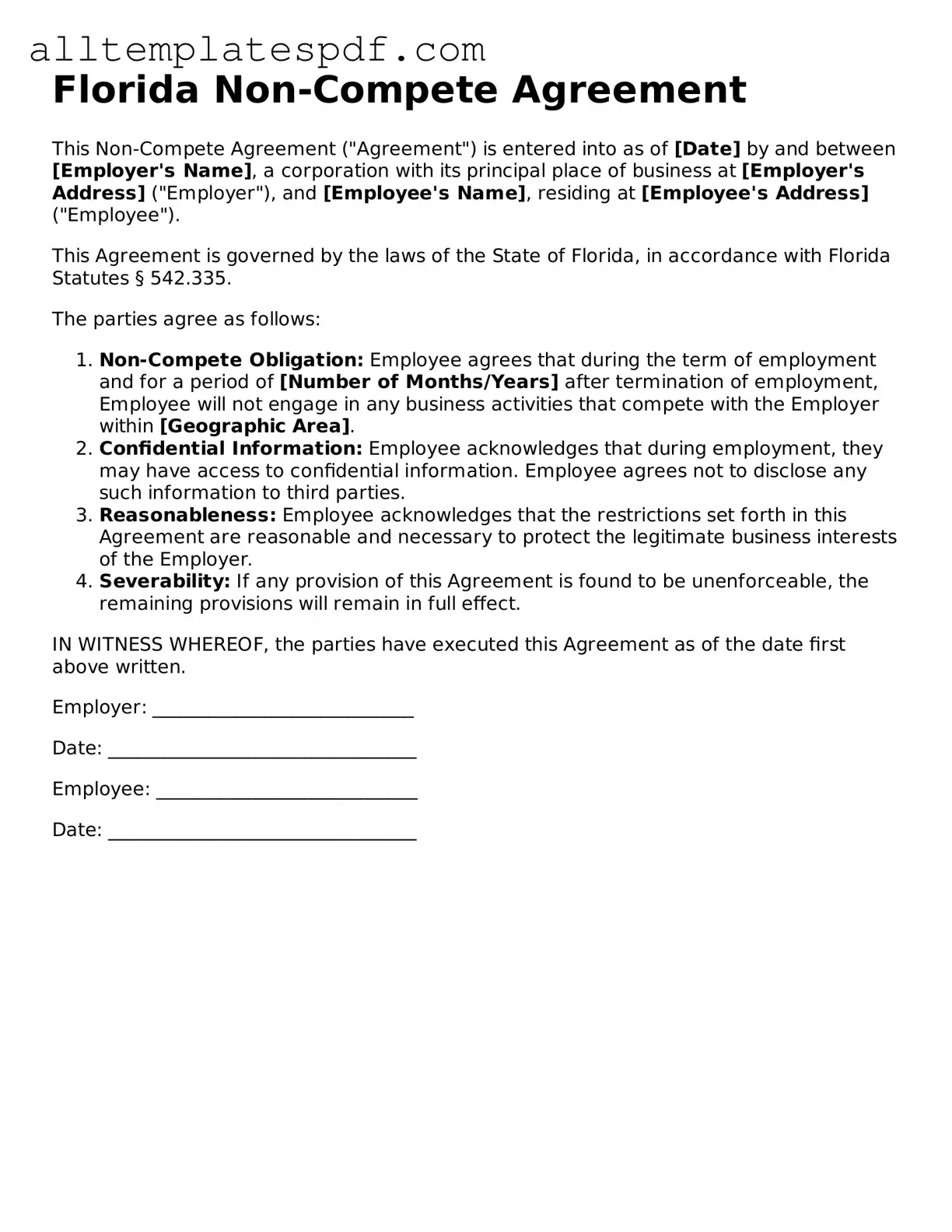Blank Non-compete Agreement Template for the State of Florida
A Florida Non-compete Agreement is a legal document that restricts an employee's ability to work for competitors after leaving a job. This form helps protect businesses by preventing the sharing of sensitive information and trade secrets. If you need to create one, fill out the form by clicking the button below.
Open Editor

Blank Non-compete Agreement Template for the State of Florida
Open Editor
Fast and easy form completion
Complete Non-compete Agreement digitally — fast and easy.
Open Editor
or
↓ Non-compete Agreement PDF Form
